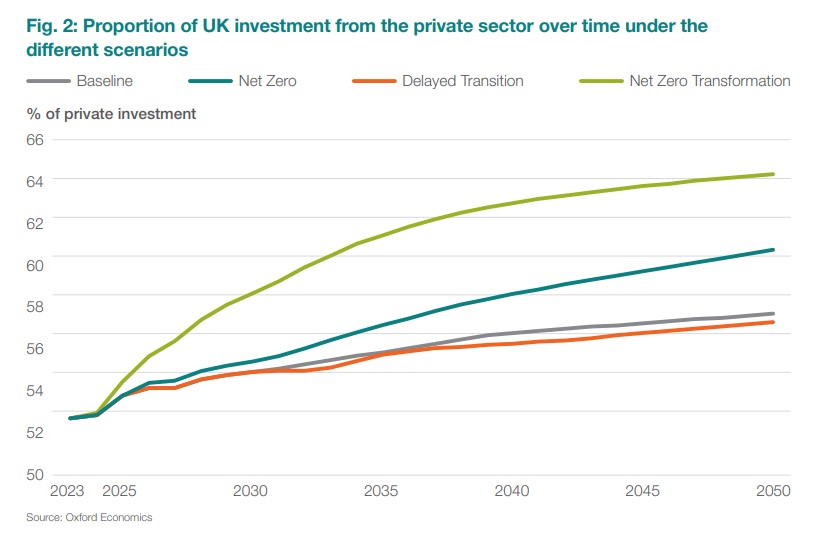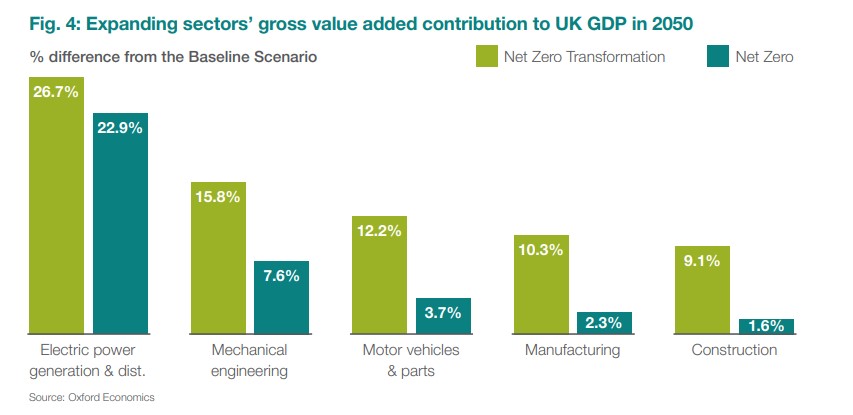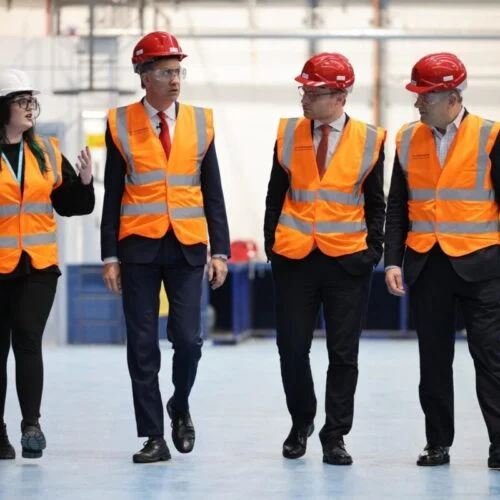A new report from Energy UK has indicated that the most ambitious net zero route could boost the UK economy by £240 billion by 2050.
The figure, which is in relation to Gross Domestic Product (GDP), could be 6.4% higher by 2050 in comparison to the current baseline, according to Energy UK’s latest report in its Clean Growth Gap series dubbed Path to Prosperity.
Achieving the ambitious net zero route would additionally see private investment boosted by £165 billion with an additional 226,000 jobs created in sectors such as manufacturing, construction, automotive and supply chains.
However, should the UK delay action in mitigating net zero, the GDP is forecast to be 1.1% worse than the baseline scenario, which assumes the government implements further policies consistent with stated commitments.
To achieve the 6.4% GDP increase, there is a need to provide “substantial investment” across a range of sectors including low-carbon generation, networks, manufacturing and services.
Energy UK states the majority of investment will come from the private sector but this must be matched by incentives from the UK government.
In 2050, there is a £95 billion difference between investment in the “Net Zero scenario” and the “Net Zero Transformation scenario”. By moving quickly to capitalise on this growing interest, the UK could become a global competitor for net zero investors, but delaying could result in a missed opportunity.

Achieving a “Net Zero Transformation” could also have a major impact on the development of several sectors in the UK. This includes the electricity market, manufacturing, automotive vehicle manufacturing and sectors within the supply chain of low-carbon technologies.
With many sectors turning their attention towards electrification, namely in heating and mobility, the expansion of the electricity market could result in an economic contribution (GVA) 26.7% higher than the baseline, which stands at 22.9%.

Commenting on the report, Energy UK’s deputy chief executive Dhara Vyas, said: “As this report again underlines, attracting investment is the key to reaching net zero in a way that maximises the benefits to our economy in terms of growth, productivity and job creation. Committing fully to the transition will reap rewards by incentivising private investment – so reducing the amount needed from the public purse – and creating a virtuous circle which will drive further innovation and technological advances to bring costs down further.
“Far from being a burden on the economy, a proactive and ambitious approach will boost incomes, expenditure, profits and tax receipts over the long-term – all of which will leave more money for government spending on other priorities like health and education.”
Vyas added: “In contrast, delaying action would mean blunter and more stringent measures further down the line that would have the opposite effect on the economy. This report shows that we can’t afford not to seize the opportunities offered by transforming to a net zero economy.”






